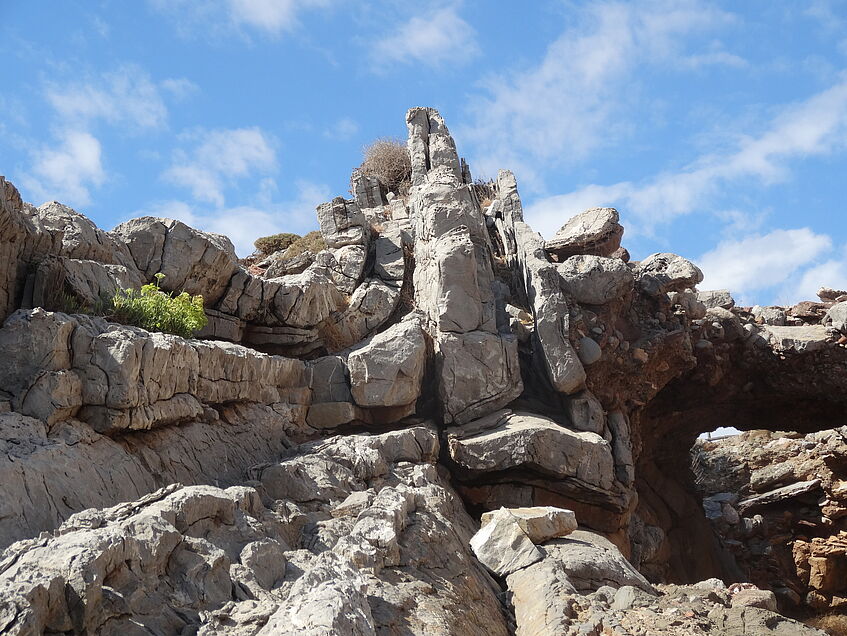Institut für Geologie

© B. Grasemann
Institut für Geologie
Research at the Department of Geology focuses on pure and applied research into both ductile/brittle lithospheric and Earth-surface processes. Field-based geology and quantitative modeling of geodynamic processes form the foundation of academic and applied Earth sciences research, in particular in petroleum geology and seismology. A close collaboration between research groups focuses on integrated geodynamics/tectonics and sedimentology/stratigraphy.
Institutsleitung: Daniel Le Heron, Bernhard Grasemann (Stv.), Michael Wagreich (Stv)
Neuigkeiten und Veranstaltungen
September 2025
Artikel/Presse
Nachhaltige Energie: "Feenkreise" können Hinweise auf die Tiefe von natürlichen Wasserstoffquellen bieten
Martin Schöpfer
April 2025
Artikel/Presse
Sedimente eines Sees offenbaren überraschende Klimageschichte Neuseelands
Christian Ohneiser
November 2024
Two new papers
The race to document the retreat of Alpine glaciers
300 million year old fjord in Namibia
Oktober 2024
Artikel/Presse
Der Mensch hat seinen Heimatplaneten für Jahrtausende verändert
Michael Wagreich
Oktober 2024
Wolfgang Schollnberger Masters Thesis Prizes
We recently held a prize giving for our three recipients of the Masters Thesis Prize: Sabine Wimmer, Jaqueline Krivetz and Lino Eggerth. Congratulations!
August 2024
Neue Publikation/Presse
Was ein Salzriese mit dem beinahe-Reset allen Lebens im Mittelmeer zu tun hat
Konstantina Agiadi
Juli 2024
Zertifikat
Paper published by Michael Wagreich as co-author in Journal of Quaternary Science on behalf of Quaternary Research Association, is one of the top 10 most-cited papers published 1st January 2022 – 31st December 2023. https://doi.org/10.1002/jqs.3467
Juni 2024
Podcast
Was die Donau über die Menschheit zu erzählen weiß
Diana Hatzenbühler










